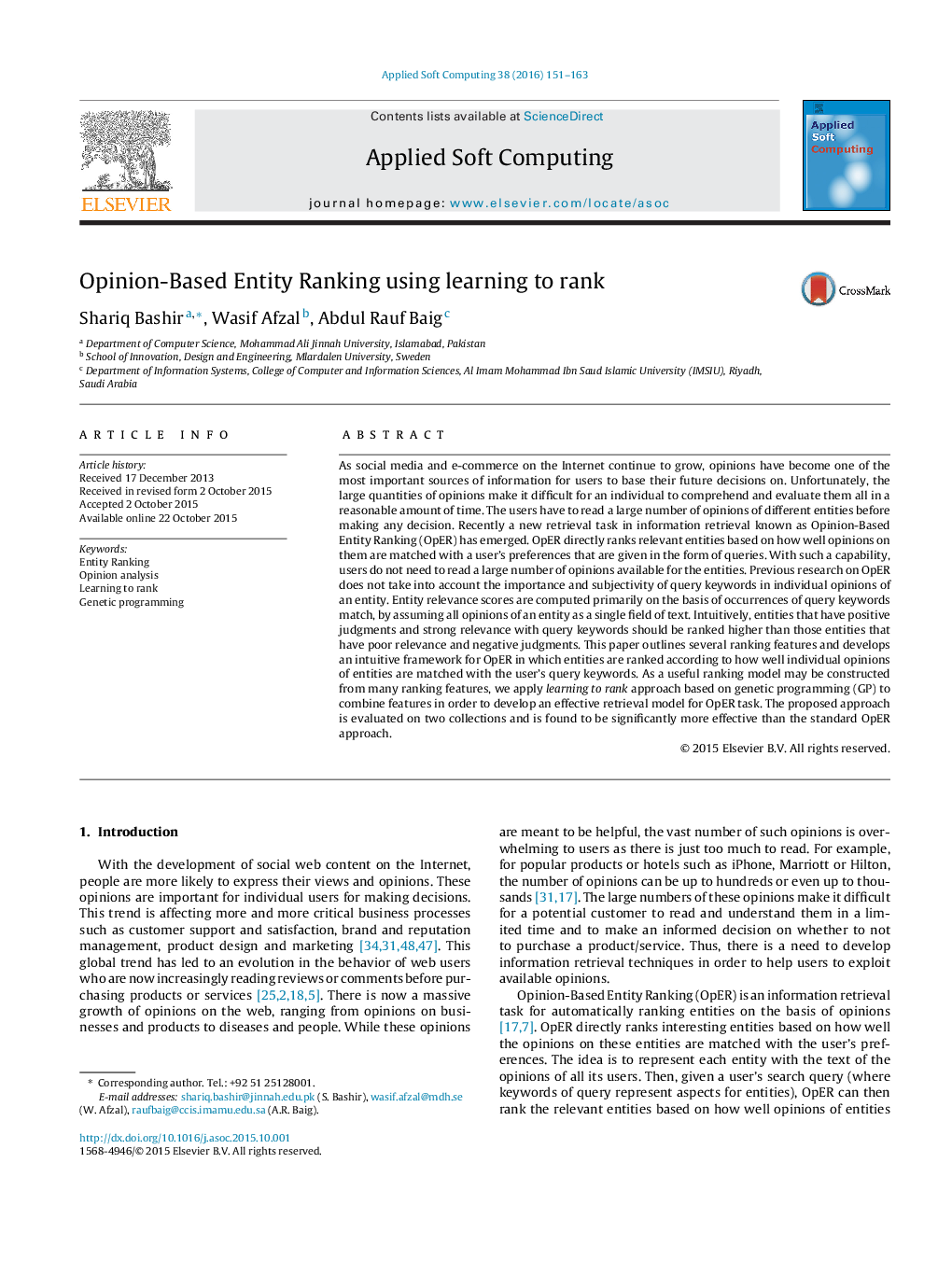| Article ID | Journal | Published Year | Pages | File Type |
|---|---|---|---|---|
| 494855 | Applied Soft Computing | 2016 | 13 Pages |
•In this paper we address Opinion Based Entity Rank (OpER) task.•OpER ranks entities based on how well opinion of entities match with users queries.•We have outlined an extensive list of ranking features that can be used to capture the notion of query keyword relevance with individual opinions.•Our experiments indicate that these ranking features have significantly high effectiveness for OpER task than standard retrieval models.•For further improving the effectiveness, we combine these ranking feature using genetic programming (GP) and learning to rank approach.
As social media and e-commerce on the Internet continue to grow, opinions have become one of the most important sources of information for users to base their future decisions on. Unfortunately, the large quantities of opinions make it difficult for an individual to comprehend and evaluate them all in a reasonable amount of time. The users have to read a large number of opinions of different entities before making any decision. Recently a new retrieval task in information retrieval known as Opinion-Based Entity Ranking (OpER) has emerged. OpER directly ranks relevant entities based on how well opinions on them are matched with a user's preferences that are given in the form of queries. With such a capability, users do not need to read a large number of opinions available for the entities. Previous research on OpER does not take into account the importance and subjectivity of query keywords in individual opinions of an entity. Entity relevance scores are computed primarily on the basis of occurrences of query keywords match, by assuming all opinions of an entity as a single field of text. Intuitively, entities that have positive judgments and strong relevance with query keywords should be ranked higher than those entities that have poor relevance and negative judgments. This paper outlines several ranking features and develops an intuitive framework for OpER in which entities are ranked according to how well individual opinions of entities are matched with the user's query keywords. As a useful ranking model may be constructed from many ranking features, we apply learning to rank approach based on genetic programming (GP) to combine features in order to develop an effective retrieval model for OpER task. The proposed approach is evaluated on two collections and is found to be significantly more effective than the standard OpER approach.
Graphical abstractFigure optionsDownload full-size imageDownload as PowerPoint slide
